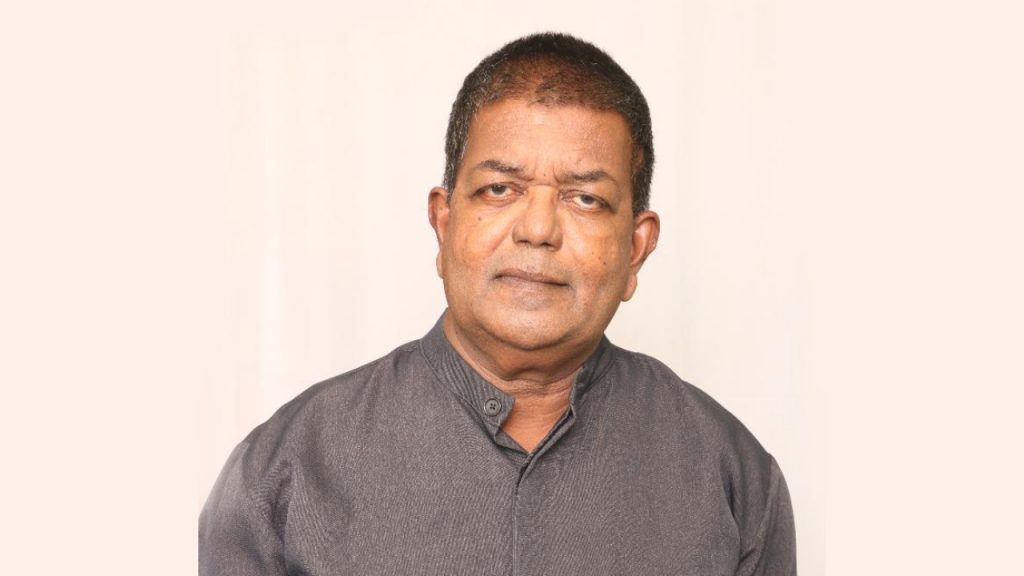Unity brings people with diverse views to work toward a common goal. The success of unity has been repeated throughout history. Nevertheless, when unity crumbles there was always loss and defeat. It is unfortunate that so many of our leaders fail to appreciate the need for unity. This can only be because they fail to put the interest of their followers first but their very own.
In the Hindu community of Trinidad and Tobago Hindu unity was bast demonstrated in 1952 when two Sanatanist organizations joined hands to form the Sanatan Dharma Maha Sabha. This unity launched a school building program in 1952 which saw the construction of 35 primary schools. Today the Maha Sabha boasts of 45 primary schools, 5 secondary schools and more than two dozen preschools.
1953 brought forth the People Democratic Party (PDP) which fought the 1956 General Elections resulting in the winning of six seats and Bhadase Sagan Maraj becoming the Leader of the Opposition.
In 1958 the PDP morphed into the Democratic Labour Party (DLP) on the advice of Alexander Bustamante of Jamaica. The DLP in Jamaica and DLP Trinidad won 19 of the Federal seats in Trinidad and Jamica and teamed up with Grantly Adams to win a majority of 25 of the 45 seats in the Federal Parliament.
The DLP went on to win the 1959 Local Government Election much to the irk of Dr. Eric Williams. It was this defeat that led to Dr Williams making the infamous ‘recalcitrant minority’ address in Woodford Square and later repeating it in an address in south Trinidad.
Basdeo Panday swallowed his pride and bestowed leadership to ANR Robinson who had only two seats in Tobago that were critical to defeating the PNM. The success of the NAR in 1986 was later dismantled with the dismissal of ULF faction led by Basdeo Panday. In 1995 Panday united with ANR Robinson to form government. The success of his government was heavily dependent on many former NAR members such as Mervyn Assam and Carlos John. Bhoe Tiwarie and Winston Dookeran, former ministers of the NAR Government, were invited to serve as principal of The UWI and Governor the Central Bank respectively.
The success of unity was repeated again in 2010 with the formation of the People Partnership led by Kamla Persad Bissessar. With the defeat of the PNM, the Partnership government appeared unstoppable until internal differences led to deep fissures in the party.
The Maha Sabha is a bulwark in the Hindu and national community. Its success is because it is not a single-member leadership. While Vijay Maharaj is the secretary general, Pandit Parasram holds the position of Dharmacharya and is a well-respected figure in the national community for his long record of service in the medical field and the social and political arena including chairman of the UNC.
The Pandit Parishad headed by Pandit Navin Omadath Maharaj is a force to reckon. I remember attending the consecration ceremony at the Watt Street Mandir and was impressed with the speeches by the Dharmacharya, Secretary General, President General, President of the Pandit Parishad and Pandit Dinesh Rambally, the MP for Chaguanas West. Also very impressive was the dynamic chairperson who is a pandit and also the principal of the Monroe Road Hindu School.
It is unfortunate that several persons who pine for unity do not belong to an organization or have a track record of working with any organization. It appears that their academic achievements have swollen their heads making it impossible to work with others.
I cannot ignore the several organizations that were running parallel to the Maha Sabha such as the Divine Life Society, Hindu Seva Sangh, Academy of Hinduism, Shivnarayan Dharam Sabha etcetera that have played their role and have now faded in oblivion. Why have these organizations that had such a great run in their early existence moved out of the stage? It is solely because of the lack of unity. The failure of a leader to open his mind to new ideas and welcome new members are major reasons. Another reason is that too many want to be leaders in their own right. Thay are contented to have a half dozen devotees in the mandir only to demonstrate that the institution is functioning.
With the exception of the Maha Sabha, Hindu leaders have more or less failed in Trinidad. It is not that there is a dearth of volunteers willing to serve but, more so, an unwillingness of leaders to embrace young and dynamic members for fear that they may usurp their leadership roles.
It is unfortunate that we have failed to look within to identify our failings because we have adopted a new culture -blame others and never accept personal responsibility. This new culture is an addiction, an escapism that is helping us to cope with failure.
